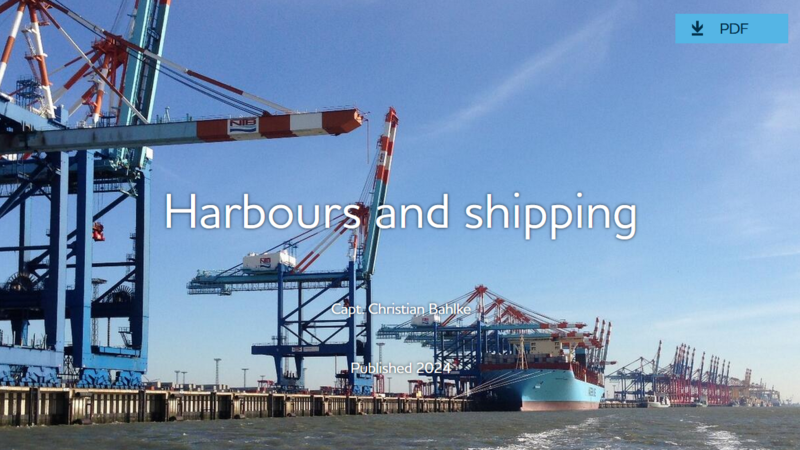New status report on harbour and shipping operations in the Wadden Sea

Shipping and harbour operations are an important economic factor throughout the Wadden Sea, both domestically and internationally. However, these activities also pose challenges to its dynamic ecosystem, for instance, by introducing alien species, emitting noise, pollutants, and greenhouse gases, or induce risks through accidents such as the recent Freemantle Highway incident. As part of the ongoing Wadden Sea Quality Status Report (QSR) gathered within the Trilateral Wadden Sea Cooperation, a comprehensive update of the thematic report on harbours and shipping has been published examining the status and evolution of these sectors.
Despite international rules and pressure to reduce carbon emissions and minimise ecological impacts of shipping and harbour operations, Captain Christian Bahlke emphasises in his report the need for urgent action to address these risks to effectively protect the Wadden Sea World Heritage Site. It suggests reviewing regulations in the Particularly Sensitive Sea Area against current shipping trends, such as increased traffic and larger vessels. Additionally, it recommends considering new or improved technical and operational safety devices and measures.
While managing international shipping is complex, the report sees opportunities for countries to make proactive decisions regarding domestic shipping and harbour operation. As stewards of the Wadden Sea, stakeholders are urged to collaborate on balancing economy and conservation to safeguard the fragile ecosystem for present and future generations.
The Wadden Sea Quality Status Report is a conglomeration of thematic reports reflecting the continuous monitoring and evaluation of the ecological status of the Wadden Sea, including reports with focus on human activities. Openly accessible at qsr.waddensea-worldheritage.org, it forms the baseline for the identification of emerging and review of existing challenges of new emerging challenges. As part of the Trilateral Monitoring and Assessment Programme, the QSR helps identify and fill knowledge gaps and priorities for the improvement of the ecological status of the Wadden Sea World Heritage Site.
The compiled information feed into the agreements of the Trilateral Cooperation. In 2024, the QSR is expected to receive further updates on fisheries and salt marshes. An update on climate change was published in February 2024.
